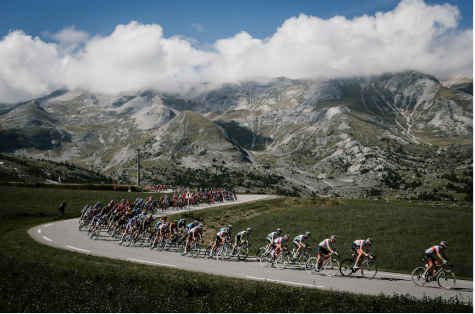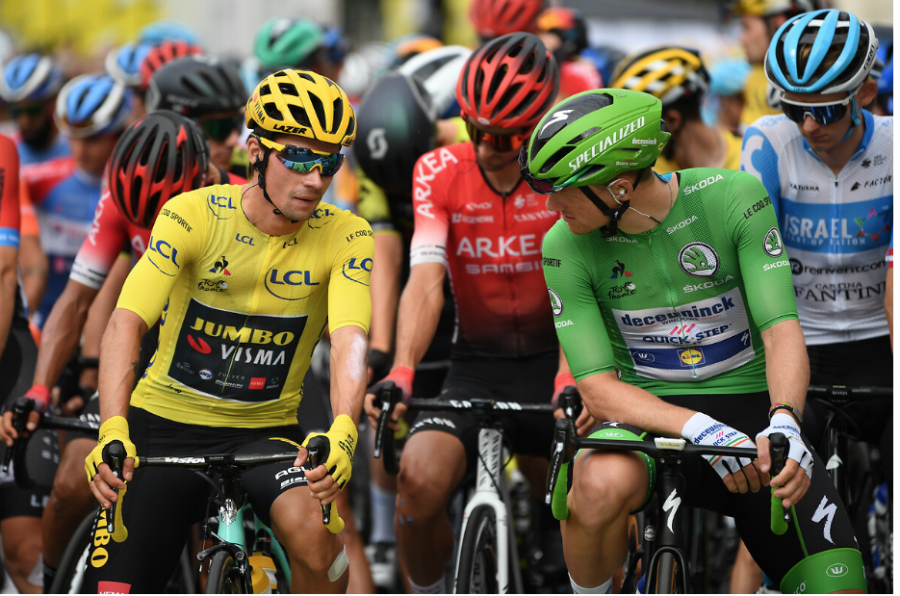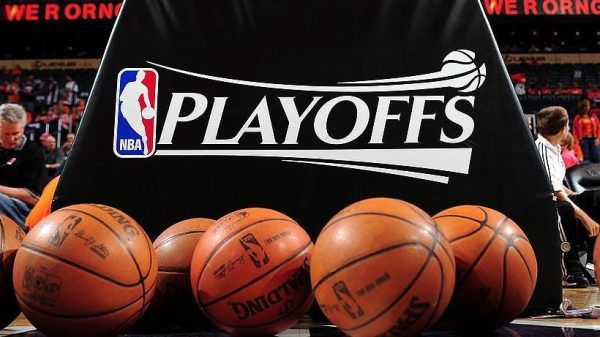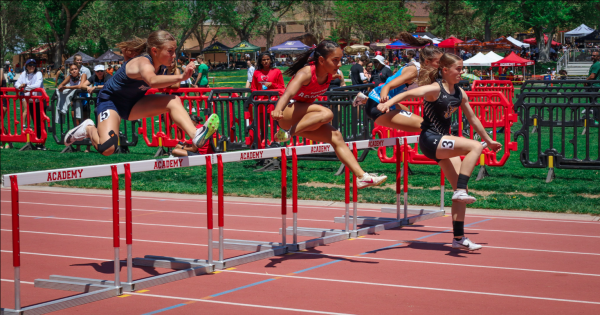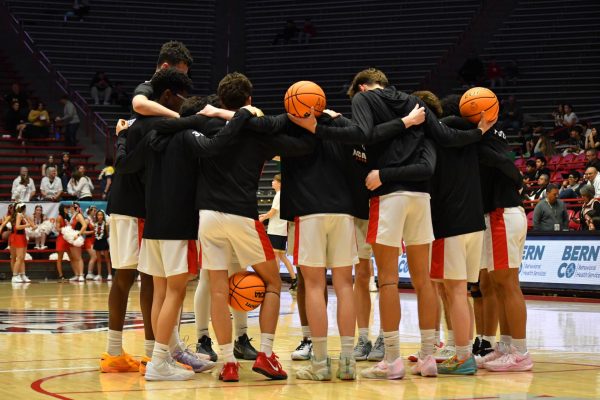The Pursuit of Paris
Is this year’s Tour de France able to produce a deserving winner?
Race leader Primoz Roglic (Jumbo Visma) shares a word with green-jersey wearer, Sam Bennett (Deceunick-Quick Step)
The Tour De France, cycling’s premier event, is viewed by a billion people worldwide every year. Millions of people line the roads of France to watch the best cyclists in the world fight for the coveted yellow jersey. The race takes place over 21 race days or stages, always ending in Paris.
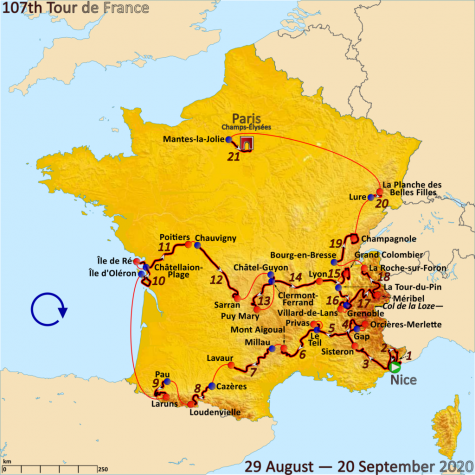
During the Coronavirus pandemic, many fans initially thought that the 107th edition of the tour would be cancelled. However, thanks to strict rules and a carefully planned route, the world’s favorite cycling race is taking place in 2020, with the conclusion set to unfold this weekend (Sept. 20). This year’s rules state that if two or more members of a given team (riders, staff, trainers, chefs, etc.) test positive for covid, the whole team is disqualified. Race fans are happy that the event is still on, but the new rules raise many questions. What happens if too many people get the virus? In that case, the tour will be finished and the leader of the race at that time will be crowned the Maillot Jaune or overall winner of the Tour De France.
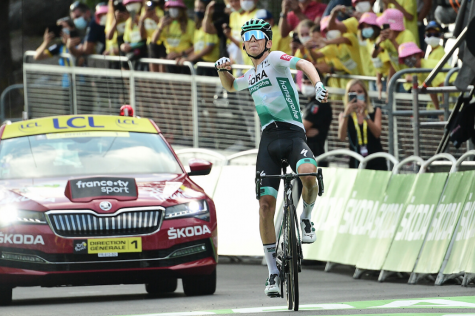
Since 1903, the Tour De France has been one of the most prominent and exciting sporting events around the world. Featuring nearly 200 cyclists from all across the world, the event takes place in some of the prettiest and most interesting roads in France and its neighboring countries. Cycling fans and sports enthusiasts alike view the Tour De France as the most prestigious race in the whole cycling calendar. Twenty-two teams from across the globe compete in the race. They all bring riders who have hopes of winning a stage, or better yet, taking home the more prestigious overall titles, also known as jerseys. Although there are four jerseys and prizes to win on the tour, the most important is the yellow jersey, or Maillot Jaune. This jersey is awarded to the rider who finishes all 21 stages in the least amount of total time. While the yellow jersey may be the most prestigious, it isn’t the only jersey up for grabs. There is also the white ‘young rider’s’ jersey. This is the prize awarded to the best finisher in the race who is under the age of 25. Additionally, the green ‘sprinter’s’ jersey is awarded to the rider who obtains the most points in the points competition. Points can be obtained at intermediate sprint points during the stage and at the finale of sprint stages. This competition was introduced as a way for the sprinters in the world of cycling to have a competition in the race to win. Finally, there is the polka dot climbers jersey. This is awarded to the rider that has the best finishing record at the top of designated climbs throughout the various stages.
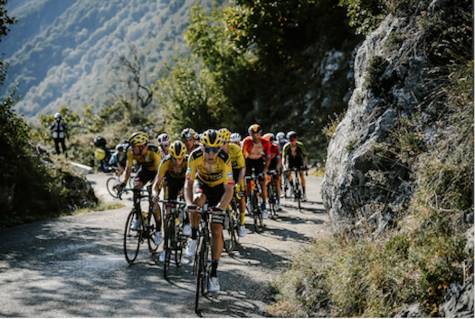
The Tour De France has a history of controversies over rules partially caused by the high-stakes nature of the event. The race organizers are often criticized for harsh rulings, inconsistent rules, and confusing regulations. For example on stage 11 of this year’s tour, the race organizers received a lot of heat when they docked the Slovakian sprinting star, Peter Sagan, 13 points in the sprint classification for an illegal bump to Wout Van Aert in the closing meters of the stage. This deficit seems nearly impossible to recover from in this year’s tour. Although the Tour De France race jury has been the topic of many controversies over the years, 2020 seems to be the year that has caused the most. The tour has been cancelled before; during both world wars the race wasn’t run. When it was announced that the race would be happening this year, fans and racers alike were very enthusiastic about the event. However, the announcement that the race may not make it all the way to Paris this year caused quite a bit of discussion.
Due to the unprecedented circumstances this year, the winner of the yellow jersey may be chosen prematurely. Oftentimes during the tour, the leader’s yellow jersey changes hands several times throughout the 21 stages. This means that the person leading during the first or second week of the race is usually not the overall winner. This makes each rider’s tactics of the race based around the notion that they will be bringing the yellow jersey to Paris. However, due to this year’s potential premature finish of the race, the tactics of the race have been changed. Many of the teams are focusing on getting their star rider in yellow as soon as possible, in the chance that the race is cancelled.
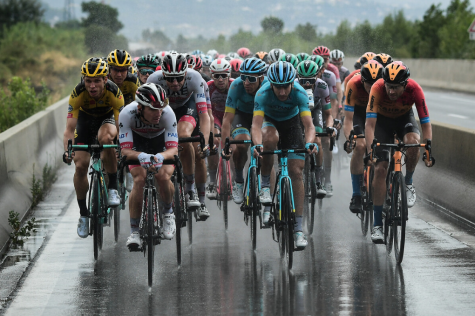
Although this has made for some exciting racing, fans have criticized this decision by the race organizers. At first glance it would seem that there is a lot of merit to this argument. Had the race been cancelled after the first day, the winner of that stage would have been the winner of the tour. Although that may seem fair to an untrained fan of cycling, it’s quite the opposite. In fact, it takes away from the spirit of the race. The Tour De France is a race that tests a rider’s ability to race for three consecutive weeks. So one win means very little in the grand scheme of the race. While these rules are unfair, it’s not the first time in recent history that the race has been forced to stop. Stage 19 in the 2019 Tour De France was canceled due to adverse weather conditions. This decision completely changed the outcome of the race. It catapulted eventual winner, Egan Bernal, into the race lead by 45 seconds. While this move certainly altered the outcome of the race, it was justified given the dangerous conditions at the time. This year’s coronavirus pandemic has created a similar situation where conditions are dangerous, making the 2020 rules and regulations for the tour justified. As this article is being written, pre-race favorite Primoz Roglic (Team Jumbo Visma) leads fellow Slovenian, Tadej Pogacar (UAE Team Emirates), by 57 seconds in the overall standings.
